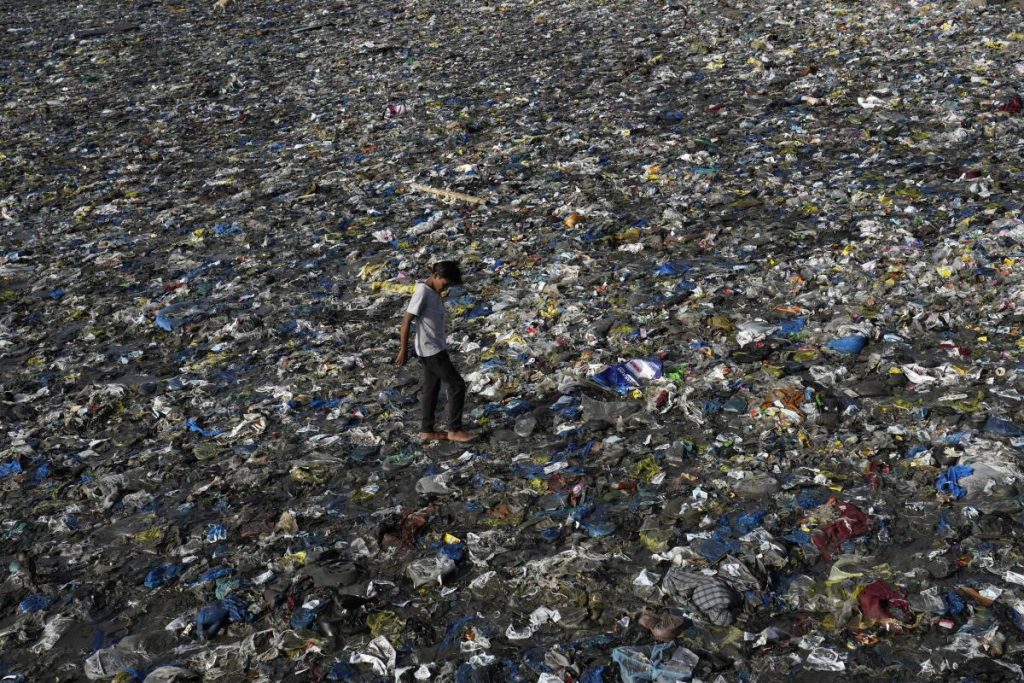Global plastic treaty talks end in Geneva without consensus

After 10 days of intense negotiations, efforts to secure an international legally binding treaty on plastic pollution ended on Friday in Geneva, Switzerland, without agreement on a final text.
The resumed fifth session of the Intergovernmental Negotiating Committee (INC-5.2) brought together over 2,600 participants, including 1,400 delegates from 183 countries.
The talks also involved nearly 1,000 observers from more than 400 organisations, and around 100 ministers, vice ministers, and high-level representatives.
According to the statement by the United Nations Environment Programme (UNEP), in spite the lack of consensus, member states, however, agreed to resume talks at a date yet to be announced, signaling a shared determination to continue the process.
The goal of INC-5.2 was to agree on the instrument’s text and highlight unresolved issues requiring further preparatory work ahead of a diplomatic conference.
The session followed a structured approach, starting with an opening plenary, transitioning into four contact groups tackling key areas, followed by a stock take plenary, informal consultations, and ending with a closing plenary on Friday.
In his remark, Inger Andersen, Executive Director of the UN Environment Programme (UNEP), said the negotiations would resume later nonetheless the setbacks.
“This has been a hard-fought 10 days against the backdrop of geopolitical complexities, economic challenges, and multilateral strains.
“However, one thing remains clear: despite these complexities, all countries clearly want to remain at the table.
“While we did not land the treaty text we hoped for, we at UNEP will continue the work against plastic pollution – pollution that is in our groundwater, in our soil, in our rivers, in our oceans and yes, in our bodies,” Andersen said.
The Geneva session aimed to finalise the treaty text and identify unresolved issues ahead of a planned diplomatic conference.
Using a Chair’s Text from INC-5.1 in Busan as the starting point, negotiators engaged in contact groups on topics including plastic design, chemicals of concern, production caps, finance, and compliance.
Two new draft proposals were said to have been tabled, but consensus proved elusive.
INC Chair, Ambassador Luis Vayas Valdivieso acknowledged the disappointment.
“Failing to reach the goal we set for ourselves may bring sadness, even frustration.
“Yet it should not lead to discouragement. On the contrary, it should spur us to regain our energy, renew our commitments, and unite our aspirations.
“It has not happened yet in Geneva, but I have no doubt the day will come when the international community will join hands to protect our environment and safeguard the health of our people,” Valdivieso said.
The process to develop a global plastics treaty began in March 2022, when the UN Environment Assembly (UNEA-5.2) adopted a landmark resolution to create a legally binding instrument to combat plastic pollution, including in the marine environment.
Since then, negotiations have taken place in Punta del Este, Paris, Nairobi, Ottawa, and Busan.
Jyoti Mathur-Filipp, Executive Secretary of the INC Secretariat, framed the way forward.
She said, “As this session concludes, we leave with an understanding of the challenges ahead and a renewed and shared commitment to address them. Progress must now be our obligation”.
The post Global plastic treaty talks end in Geneva without consensus appeared first on Vanguard News.

 yarkarkara
yarkarkara 





